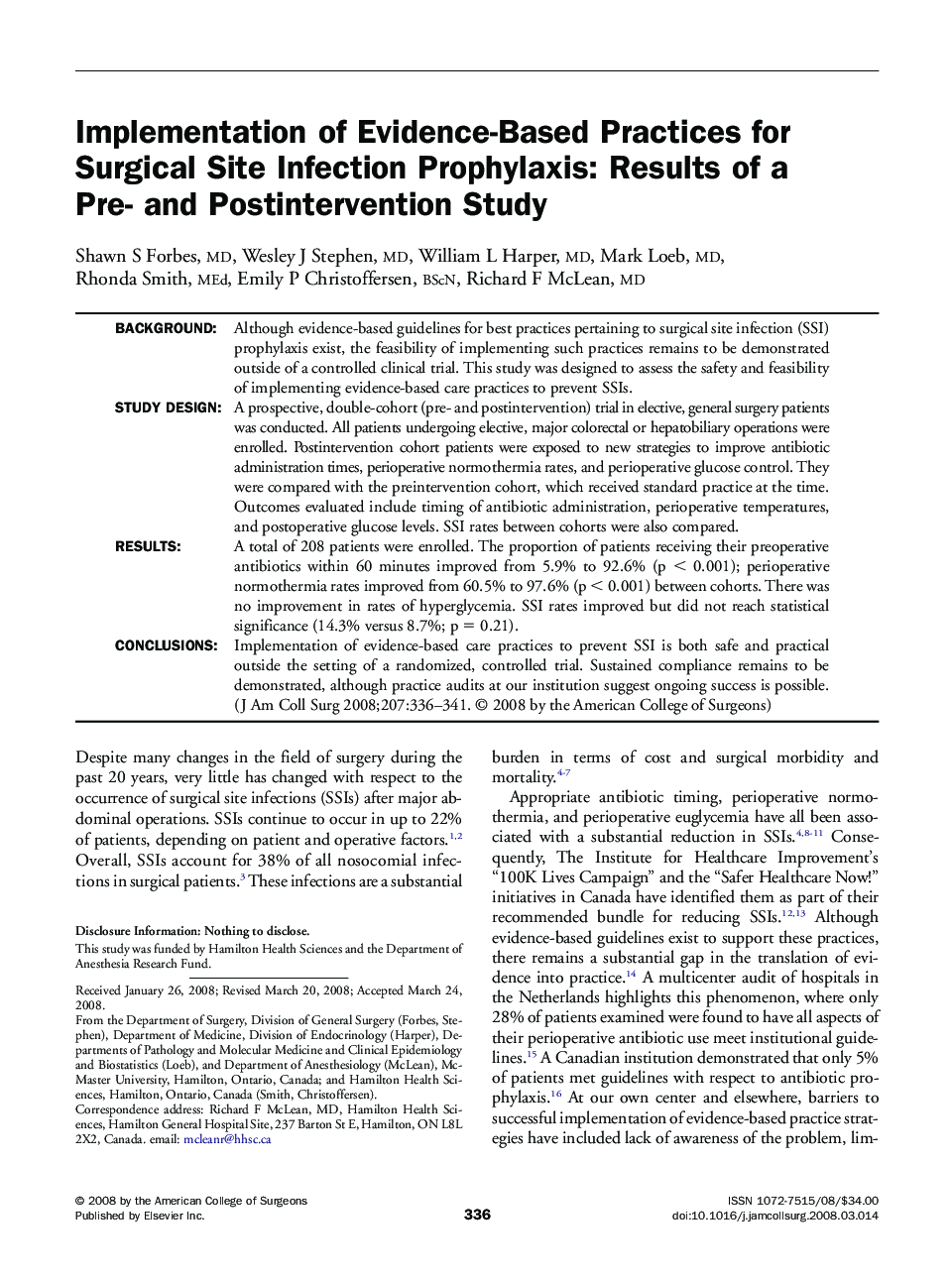| Article ID | Journal | Published Year | Pages | File Type |
|---|---|---|---|---|
| 4294220 | Journal of the American College of Surgeons | 2008 | 6 Pages |
BackgroundAlthough evidence-based guidelines for best practices pertaining to surgical site infection (SSI) prophylaxis exist, the feasibility of implementing such practices remains to be demonstrated outside of a controlled clinical trial. This study was designed to assess the safety and feasibility of implementing evidence-based care practices to prevent SSIs.Study DesignA prospective, double-cohort (pre- and postintervention) trial in elective, general surgery patients was conducted. All patients undergoing elective, major colorectal or hepatobiliary operations were enrolled. Postintervention cohort patients were exposed to new strategies to improve antibiotic administration times, perioperative normothermia rates, and perioperative glucose control. They were compared with the preintervention cohort, which received standard practice at the time. Outcomes evaluated include timing of antibiotic administration, perioperative temperatures, and postoperative glucose levels. SSI rates between cohorts were also compared.ResultsA total of 208 patients were enrolled. The proportion of patients receiving their preoperative antibiotics within 60 minutes improved from 5.9% to 92.6% (p < 0.001); perioperative normothermia rates improved from 60.5% to 97.6% (p < 0.001) between cohorts. There was no improvement in rates of hyperglycemia. SSI rates improved but did not reach statistical significance (14.3% versus 8.7%; p = 0.21).ConclusionsImplementation of evidence-based care practices to prevent SSI is both safe and practical outside the setting of a randomized, controlled trial. Sustained compliance remains to be demonstrated, although practice audits at our institution suggest ongoing success is possible.
